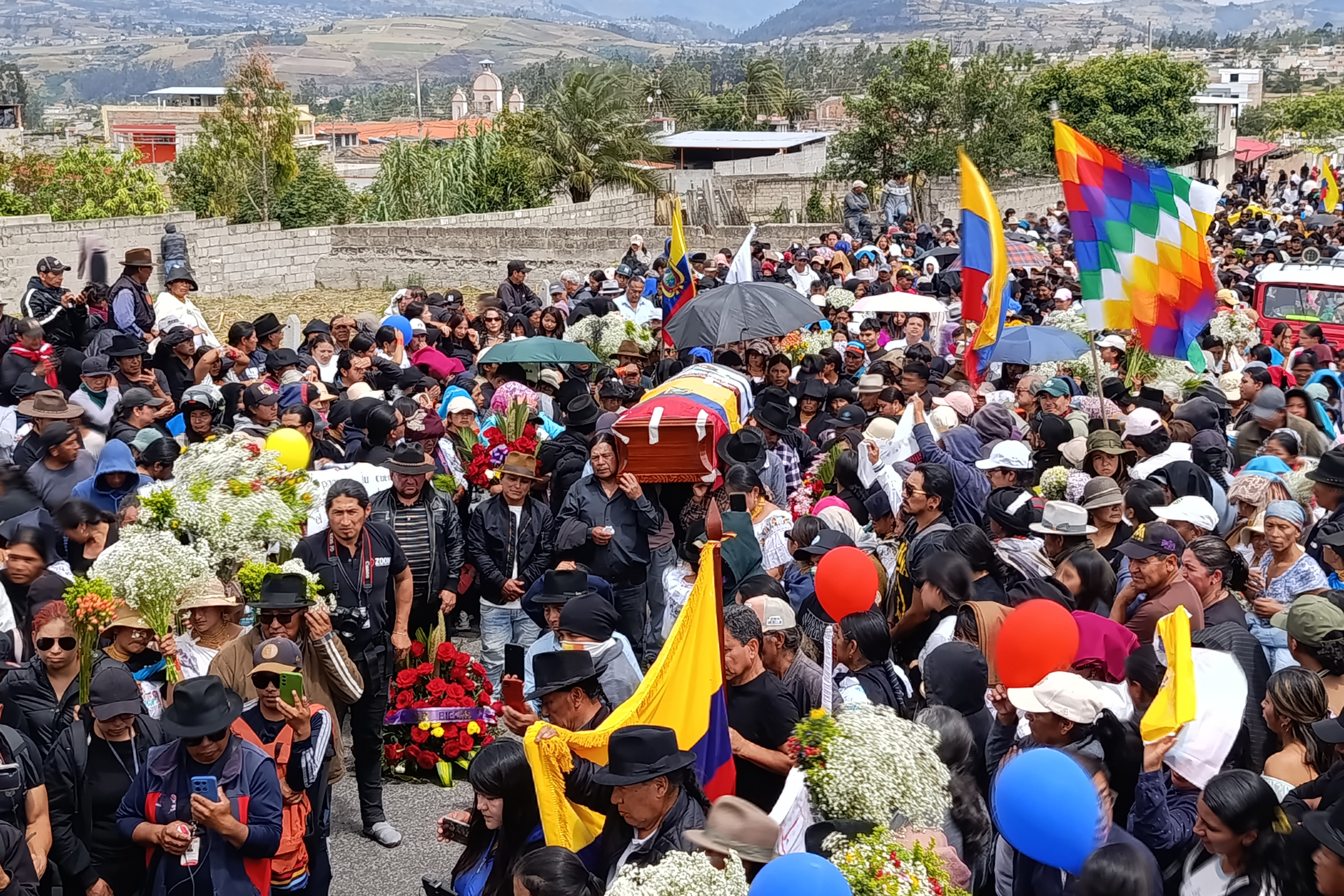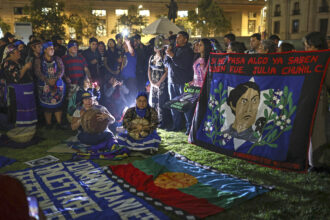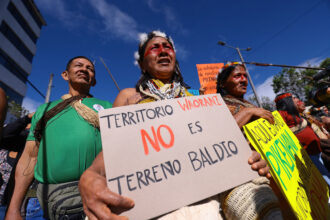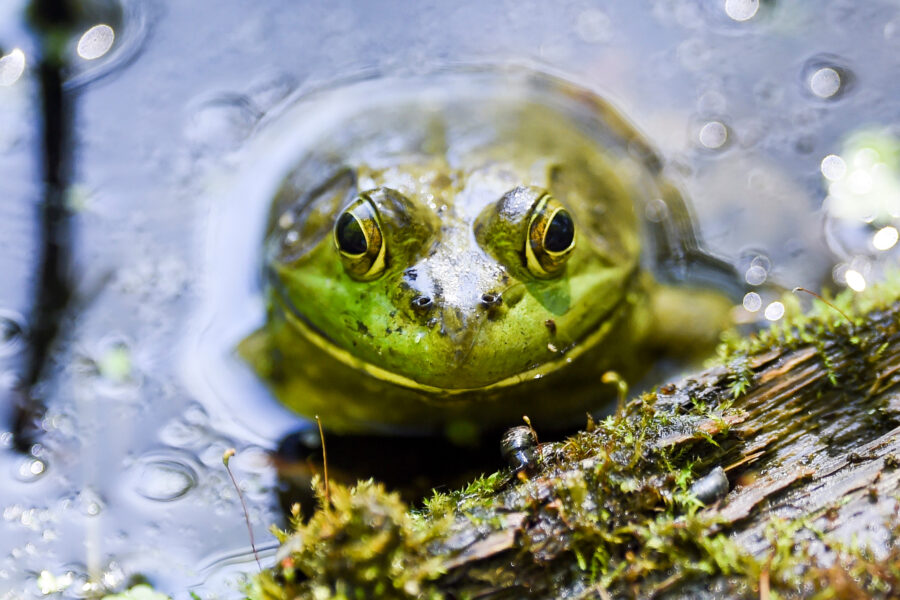At least three people have been killed in Ecuador as the government further ramps up its use of force against Indigenous-led protests triggered in part by crackdowns on environmentalists, according to civil society and human rights groups.
Two of the dead are Rosa Elena Paqui, 61, who went into cardiac arrest following the inhalation of tear gas, and José Alberto Guamán Izama, 30, who was shot in the chest, according to Ecuador’s largest Indigenous organization, Confederation of Indigenous Nationalities of Ecuador (CONAIE), and Ecuador’s Alliance for Human Rights. The two deaths follow the killing of Efraín Fueres, 46, who was gunned down while marching in an early-morning demonstration on Sept. 28.
The Ecuadorian Consulate in Washington, D.C., did not respond to requests for comment.
Demonstrations broke out across the country in mid-September, triggered by high costs of living, including a policy that hiked gasoline prices by more than 50 percent, and a series of authoritarian moves by the government that have targeted Indigenous and environmental leaders and protesters.
Since becoming Ecuador’s youngest president in 2023, Daniel Noboa has taken a series of steps to gut environmental and human rights protections, including moving the environmental ministry under the business-focused Ministry of Energy and Mines and enacting legislation overhauling safeguards for protected areas to ensure “financial stability.” Critics say the moves pave the way for the pro-oil and pro-mining government to open ecologically sensitive areas and Indigenous territories to extractive industries.
“Under the guise of modernizing the management of Ecuador’s protected areas, the aforementioned law introduces legal changes that could weaken the constitutional and international guarantees of control and self-determination of Indigenous Peoples, as well as Afro-Ecuadorians and Montubio peoples,” a group of United Nations human rights experts wrote in Spanish to the Ecuadorian government earlier this month.
Inside Climate News previously reported that the Noboa administration has arrested, detained or frozen the bank accounts of 61 leaders of Ecuadorian environmental, Indigenous and human rights organizations. The Noboa administration also referred some of those leaders to federal prosecutors for the alleged crime of “unjustified private enrichment,” without presenting evidence of the alleged crimes publicly, representatives of those organizations said.
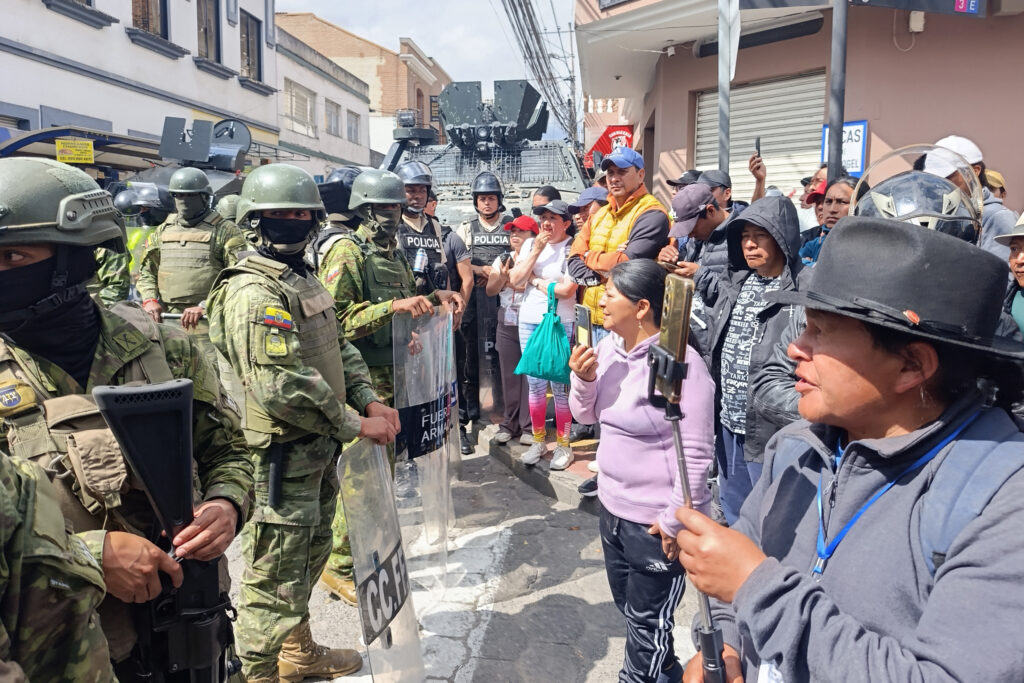
Ecuadorian civil society groups said the 61 leaders work on programs that collectively protect at least 35 million hectares of Ecuadorian and Peruvian Amazon rainforest. The leaders are also working to restore an additional 8.7 million hectares and represent 1,500 Amazonian Indigenous communities in Ecuador.
“Defending life is not a crime,” said José Cueva, spokesman of the National Anti-Mining Front and one of the leaders referred to prosecutors. Cueva has played a leading role in defending forests and other ecosystems from industrial mining, using laws including Ecuador’s 2008 constitutional recognition of nature’s rights.
He helped win two Constitutional Court cases that prevented mega-mining from taking place in the Intag Valley, an ecologically sensitive cloud forest. Cueva said in a text message to Inside Climate News that he sees his referral to prosecutors as an attempt to prevent that work from being replicated.
“This is a way of generating more fear,” he said, calling the accusations false.
Cueva said some mining companies in the country have sought to discredit environmental defenders’ work by accusing them of being financed by illegal mining groups and that he sees the government’s actions as replicating those tactics. He added: “It is clear that corporate interests are governing Ecuador.”
This story is funded by readers like you.
Our nonprofit newsroom provides award-winning climate coverage free of charge and advertising. We rely on donations from readers like you to keep going. Please donate now to support our work.
Donate NowVideos posted to social media in recent weeks have shown police and military officers descending on rural towns, officers firing toward civilians and clouds of tear gas engulfing villages. In one video, an officer swings a baton at an older woman dressed in a pollera skirt and bowler hat—the traditional clothing of Andean Indigenous women—as she tries to help a fallen protester.
The government has described the deployment of some troops as humanitarian convoys, though human rights groups have said troops have not delivered aid.
“On the contrary, they have harassed and attacked Indigenous communities, protesters and non-protesters,” Ecuador’s Alliance for Human Rights said in an Instagram post in Spanish. That group said since Sept. 23, there have been at least 346 reported human rights violations, 172 arrests and 282 people injured.
Last week, protestors threw rocks at Noboa’s motorcade, which drove through one of the demonstrations. Indigenous leaders characterized the situation as a “false flag” operation to justify further repression.
Human rights groups and experts have condemned the government’s response to the protests, with some seeing the clampdown as part of a broader attack on the country’s powerful Indigenous and environmental movements.
In the early 2000s, those groups were the driving force behind a constitutional rewrite that enshrined powerful legal protections for Indigenous peoples and nature, including a recognition that nature has inherent rights to exist and persist. Since then, Ecuadorians have used their constitutional rights, including a right to protest government policies, to protect cloud forests, rivers, wild animals, mangroves and other ecosystems from industrial mining and other extractive activities.
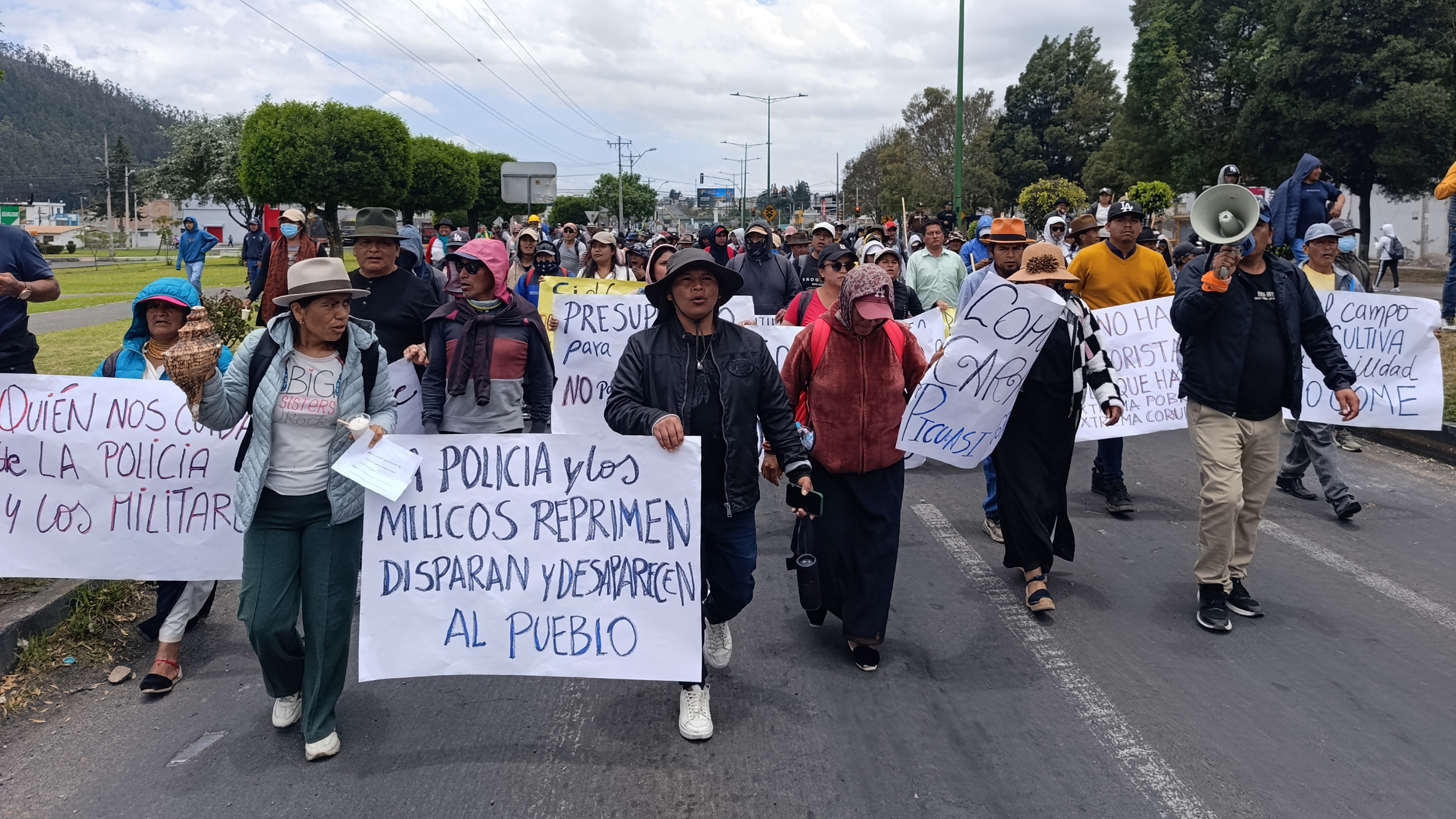
“Defending life, land, human rights, and freedom of expression cannot be criminalized. Peace cannot be imposed by force: it is built on truth, justice, and dialogue,” said a statement released Thursday by more than 130 civil society and human rights organizations calling on the Ecuadorian government to end “repression, militarization, and excessive use of force.”
Noboa, an ally of U.S. President Donald Trump, has defended his policies as necessary to make the government more efficient and to combat a surge in organized crime.
The Ecuadorian news organization Radio Pichincha reported on Wednesday that Indigenous leaders and government officials opened a dialogue on how to end the nearly month-long protests. Indigenous leaders, the report said, raised concerns about the lack of drinking water, poor road conditions and deficient health and education programs. They also asked the government to release imprisoned protesters, cease calling demonstrators “terrorists,” investigate protester deaths, provide medical attention to injured civilians and freeze the policy that hiked fuel prices.
Indigenous people make up about 1.1 million of Ecuador’s 18 million people.
On Nov. 16, Ecuadorian voters will go to the polls to decide whether to agree to Noboa’s request to allow him to rewrite the constitution, a move that could strip the rights of nature, Indigenous peoples’ right to consultation and other protections from the charter.
Cueva said the November referendum will act as a thermometer. If Noboa succeeds, Cueva said in a text message, “we will face a critical situation in Ecuador in which rights will be clearly violated in favour of corporate interests.”
About This Story
Perhaps you noticed: This story, like all the news we publish, is free to read. That’s because Inside Climate News is a 501c3 nonprofit organization. We do not charge a subscription fee, lock our news behind a paywall, or clutter our website with ads. We make our news on climate and the environment freely available to you and anyone who wants it.
That’s not all. We also share our news for free with scores of other media organizations around the country. Many of them can’t afford to do environmental journalism of their own. We’ve built bureaus from coast to coast to report local stories, collaborate with local newsrooms and co-publish articles so that this vital work is shared as widely as possible.
Two of us launched ICN in 2007. Six years later we earned a Pulitzer Prize for National Reporting, and now we run the oldest and largest dedicated climate newsroom in the nation. We tell the story in all its complexity. We hold polluters accountable. We expose environmental injustice. We debunk misinformation. We scrutinize solutions and inspire action.
Donations from readers like you fund every aspect of what we do. If you don’t already, will you support our ongoing work, our reporting on the biggest crisis facing our planet, and help us reach even more readers in more places?
Please take a moment to make a tax-deductible donation. Every one of them makes a difference.
Thank you,


